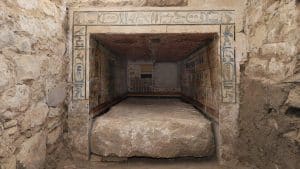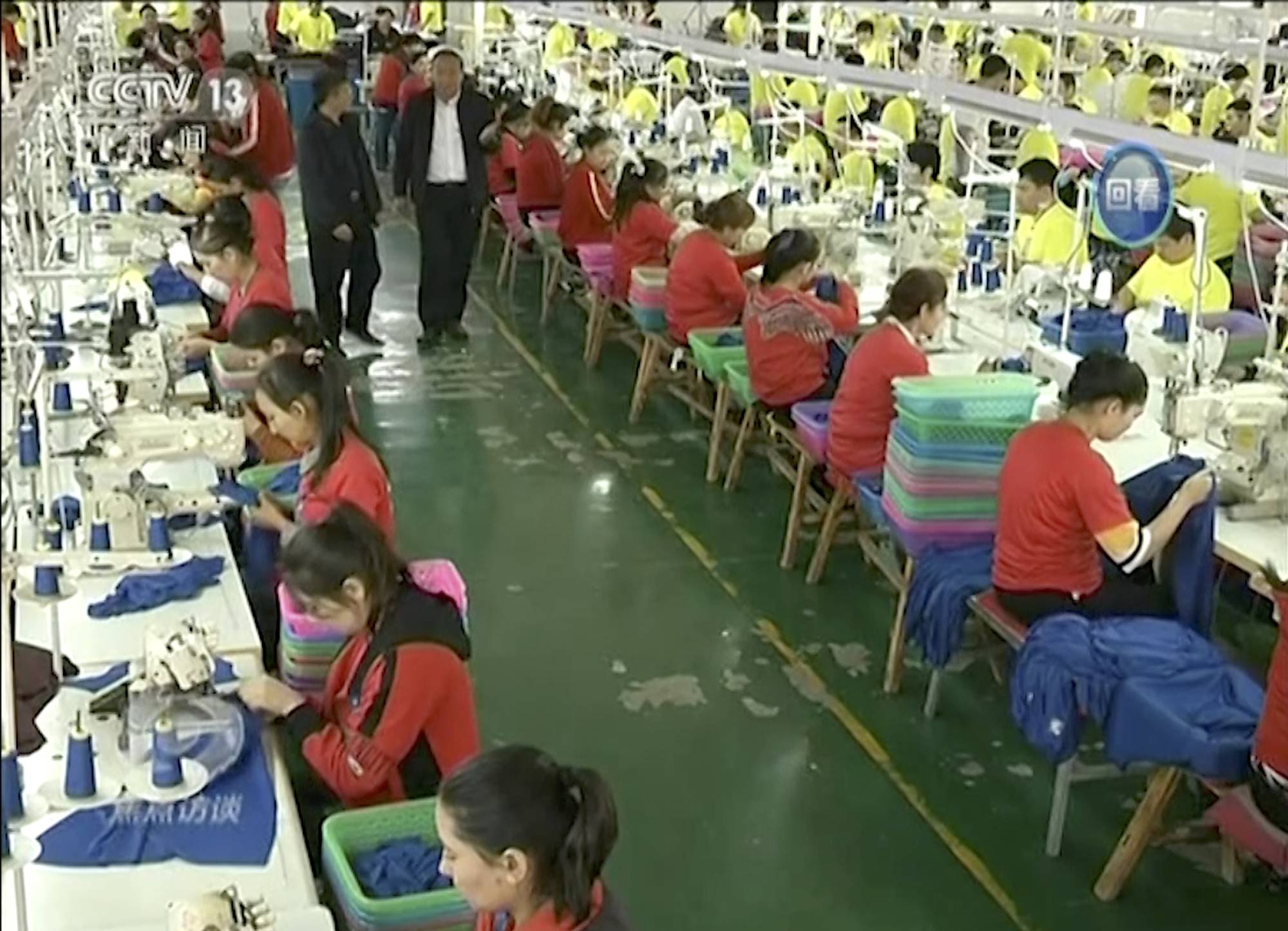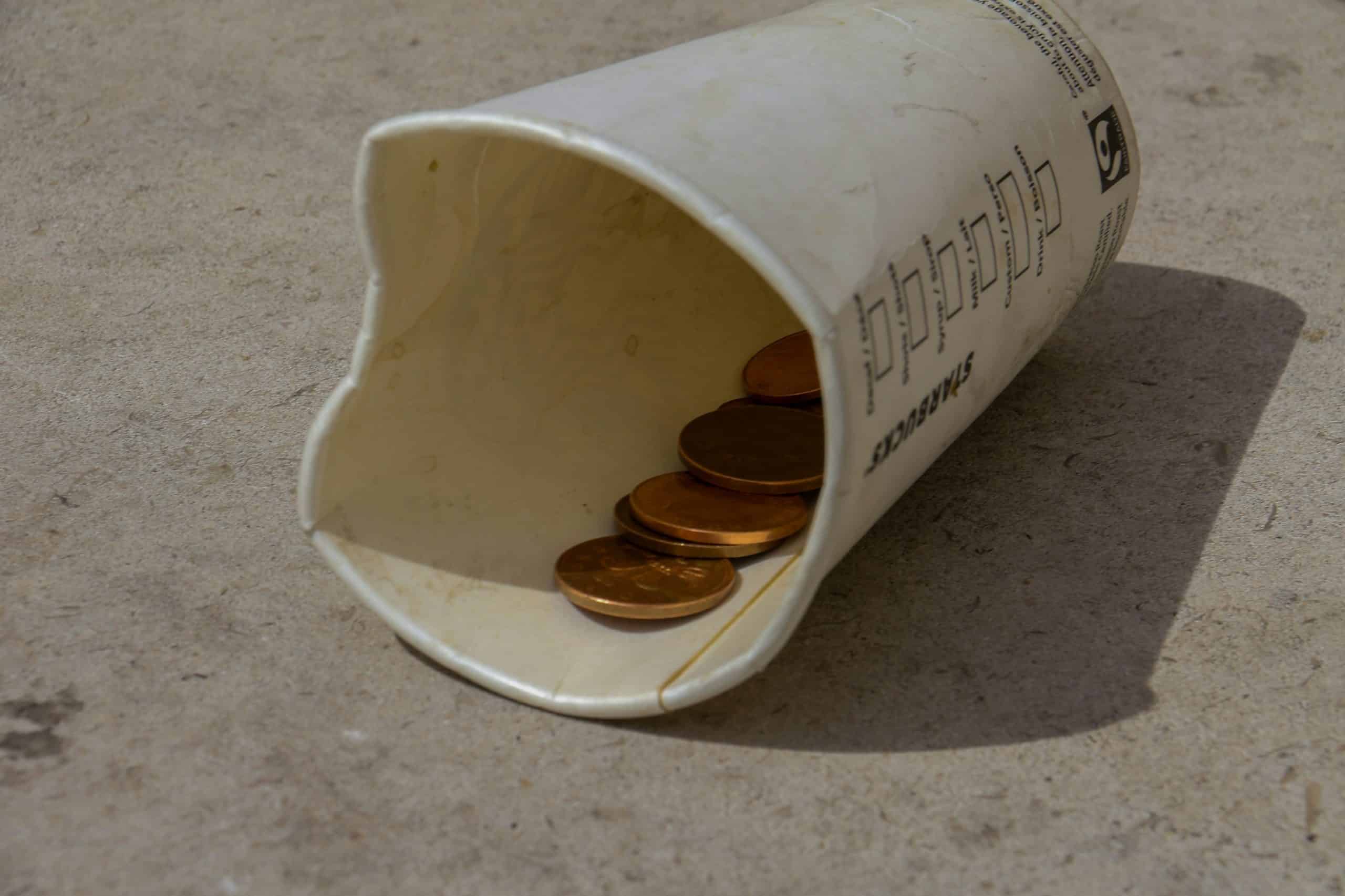Rania suffers an emotional breakdown, and Deek’s relationship with his daughters goes downhill.
Previous Chapters: Part 1 | Part 2 | Part 3 | Part 4 | Part 5 | Part 6 | Part 7 | Part 8 | Part 9 | Part 10 | Part 11 | Part 12 | Part 13| Part 14 | Part 15 | Part 16 | Part 17 | Part 18 | Part 19 | Part 20 | Part 21 | Part 22
* * *
A man came to the Prophet (peace and blessings of Allah be upon him) and said, “O Messenger of Allah, direct me to an act which, if I do it, [will cause] Allah to love me and the people to love me.” So he (peace and blessings of Allah be upon him) said, “Renounce the world and Allah will love you, and renounce what the people possess and the people will love you.” – Ibn Majah
Remember the Good Stuff
By the time Rania had finished her impassioned recitation of the poem, tears coursed freely down her cheeks. Deek pressed his palms into his eyes to stifle his own imminent tears.
“Do you remember,” Rania went on, “our first little apartment on Millbrook?”
“It was hot and miserable, and we used to fight.”
“That’s not what I remember. I think about the sprinkler.”
 Deek smiled involuntarily. They’d bought a rotary sprinkler for the little high-fenced backyard, and when the apartment grew too hot, they would play in the sprinkler. Rania would hike her dress to her knees and dance a flowing, graceful khaleeji dance, making billowing motions with the skirt.
Deek smiled involuntarily. They’d bought a rotary sprinkler for the little high-fenced backyard, and when the apartment grew too hot, they would play in the sprinkler. Rania would hike her dress to her knees and dance a flowing, graceful khaleeji dance, making billowing motions with the skirt.
“I forgot about that.”
“That’s your problem,” Rania said. “All you remember is crypto passwords. You forget the good times.”
Deek smiled slyly. “Oh, I remember plenty of the good stuff.”
“Okay, so?”
Deek inhaled deeply through his nose, then let it out. “Here’s where I get stuck. What if I had not struck it rich in crypto? What if I were still working like a dog in that sweltering closet, trying and failing? Would you be reciting love poetry and talking about the good old days? Or would you still be ridiculing me, shouting at me, and hanging out with Dr. Townsend?”
Now it was Rania’s turn to look away. Deek saw her jaw muscles clench and relax as she wiped tears away with her sleeve.
What Do You See?
To Deek’s shock, Rania suddenly leaned across and grabbed his jacket with both hands. Her face came close to his, and he thought she might kiss him. This thrilled him, but at the same time, he didn’t want it. He pulled away, but she held him tight.
“Look into my eyes, habibi. What do you see?” His wife stared into his eyes from only a few inches away. He could feel the heat coming off her skin and smell the tuna on her breath. Her eyes were as wide and dark as the night sky. Looking into those beautiful orbs, he saw love, fear, worry, and anger. He tried to speak, but his tongue was tied. Desire and resentment warred inside him, two old enemies battling alone on a scarred and barren plain. He opened his mouth, but nothing came out.
“Well?” Rania demanded.
Deek closed his eyes tightly and dropped his chin.
“Fine!” Rania thrust him away and moved back to her seat. Her mouth was a hard line. “Undo it all, then.” She tossed the Milestone debit card onto the dashboard. “Keep that. I’ll send back the money you transferred. Don’t give me anything at all. Keep it all for yourself, I don’t care. But come back to me.”
“Yeah.” He blurted out the first thing that came into his head. “But you know I have the money. So you can say that.”
Anger flashed across her face. “Ya electric eel! What will convince you? Whatever I say, you respond with suspicion. This money has poisoned you. Keep it all and don’t give me a penny. Wallahi, I mean it. Keep it all. Cancel the trust payments. I have to get back to work.” She exited the car and walked away.
Mummifying Himself
Watching her depart, Deek chewed on his lip. She’d said many beautiful things. She was right, what did he expect her to do? The answer was that he didn’t know. He had no idea what he wanted. He was a bull in a china shop, smashing everything around him because, well, that’s what happens when you put a bull in a tight space.
Zaid had once said, “Go the distance,” but what did that mean now? Deek was already wealthier than he could have ever imagined. Love of money might be the root of all evil, but Deek had been poor as well, and that wasn’t fun at all. So why did he feel like this crypto windfall was a slow poison working its way through his system, not killing him but turning him into a shade of his former self?
If love and forgiveness brought people’s hearts closer, then money seemed to do the opposite. It spurred misunderstandings, resentments, and even violence.
 Deek felt like he was outfitting his own tomb. He was a pharaoh of old, but instead of having slaves to bury him when he died, he was doing it with his own hands: digging the tunnel, excavating the silent subterranean room, and filling it with the treasures that would surround him when he was nothing but a rotting corpse. Soon he’d be wrapping himself in cloth, mummifying himself for the long, still, and solitary centuries to come. The tomb might be called the Marco Polo, and the mummy’s rags were an Italian suit.
Deek felt like he was outfitting his own tomb. He was a pharaoh of old, but instead of having slaves to bury him when he died, he was doing it with his own hands: digging the tunnel, excavating the silent subterranean room, and filling it with the treasures that would surround him when he was nothing but a rotting corpse. Soon he’d be wrapping himself in cloth, mummifying himself for the long, still, and solitary centuries to come. The tomb might be called the Marco Polo, and the mummy’s rags were an Italian suit.
Adrift On The Tigris
Rania consoled herself with the thought that she’d done the best she could. She’d laid her heart open like a spatchcocked chicken. Limping painfully back to pediatrics, she made a little gesture with her hand, as if to say, it is what it is.
She had been tempted – when Deek was blathering on about the old Rania vs the new Rania, as if she were a soft drink whose formula had changed – to tell him about the home office she was building for him. But no, the office was a gift and an expression of love. She would not cheapen it by turning it into ammunition to fire at him during an argument. He would learn about it when he came home, inshaAllah. If he did not, he would not.
Unlike Deek, she knew what money was for. It existed to serve the needs of the family and the deen. Not to separate people.
She imagined herself now as a woman standing on a raft, adrift in the great Tigris River with no oar. The current would take her where it would. Hasbun Allahu wa ne’m Al-Wakeel.
Desiccated Fruit
 It was very late when she arrived home, and the girls were asleep. The small knife stabbing her in the back had turned into a sword. Every step was an effort. She turned on the kitchen light, grabbed a yogurt out of the fridge, and saw the backpack on the table. This must be what Deek had sent with the girls.
It was very late when she arrived home, and the girls were asleep. The small knife stabbing her in the back had turned into a sword. Every step was an effort. She turned on the kitchen light, grabbed a yogurt out of the fridge, and saw the backpack on the table. This must be what Deek had sent with the girls.
She unzipped it and saw that it was stuffed with cash. There were wrapped stacks of 50 and 100-dollar bills. There was no letter, no card. Nothing personal at all. Just money.
She counted it. Two hundred thousand dollars. She felt her face turning hot. Was this a family or a mafia operation? Nostrils flaring with fury, she seized the backpack and shook it. The money stacks spilled out like desiccated fruit falling from a drought-struck tree. Rage suffused her body down to the very cells. She grabbed the edge of the dining table and lifted. The table tipped over with a crash, spilling the money and yogurt to the floor, along with last Sunday’s newspaper, a notebook, a pile of bills, and a glass bowl filled with fruit.
The bowl shattered, sending glass in every direction. Apples rolled across the floor and thudded against the wall. The money packs hit with a soft thud. At the same time, Rania’s back gave way, and she fell to the floor with a cry. She heard shouts from the girls’ rooms and a moment later they ran out, barefoot and hair disheveled. Their faces showed fear and shock. Sanaya looked all around, imagining an intruder, then stepped on broken glass and shouted, hopping on one foot. Amira was frozen in place.
Yet still Rania’s rage had not abated. As the girls – stepping carefully – pulled her off the floor, she rolled up to her knees and elbows and slapped the ground with one hand, sobbing.
The girls began to weep as well. Amira’s arms circled her and held on tightly. “It’s okay, Mom, ” her daughter said between sobs. “Everything’s okay.”
She had to stop. She was scaring her daughters. With an effort, she brought herself under control. “I’m sorry,” she told them. “You’re right, everything’s fine.”
With the girls’ help, she made it to the sofa, where she took a hydrocodone pill with a glass of water, then lay on her back with two cushions beneath her legs.
Sanaya sat beside her, cleaning and bandaging her own foot while Amira swept up the broken glass.
“I’m sorry about your foot,” Rania said.
“What’s going on, Mom?”
“You’re legit freaking us out,” Amira added.
“I’m sorry. I had an awful day, plus my back hurts. I lost a patient. Then I came home and saw all that money from your father, like he thinks it makes everything okay. I lost it. I went crazy.”
“Do you want to go to the hospital?” Sanaya asked.
Rania gave a bitter laugh. “I just came from there.”
Sanaya made a helpless motion. “What do you want us to do?”
Rania reached out and pulled her daughter into an embrace. “I’m fine now. I’ll sleep here. You two go back to bed.” She waved a hand toward the kitchen. “Tomorrow I want you to take that money back to your father.”
Electric Eel
The girls righted the table and picked up the fruit and other items. They each kissed her cheek, then returned to bed. Rania lay in the dark, regulating her breathing, trying to wrestle the hot pain into submission, and when that failed, trying to push it to the edge of her awareness. She breathed in through the nose, out through the mouth. Silently, she cursed cryptocurrency and wished it had never been invented.
The money in that backpack presented a dilemma. If she kept it, she could take a sabbatical from her job and pursue other opportunities. She could take the girls on a vacation. But the price was too high.
Deek was slipping away. It hadn’t escaped her notice that he’d spoken of their marriage in the past tense. She was trying to hold on to an electric eel, but it was too filled with voltage. Yet she would not let go, for though he thought he was leaving her behind, in reality, he was leaving the water that sustained him.
The refrigerator hummed, and ice from the ice maker rattled into the tray. A nightbird called with a mournful sound. She recited Surat Al-Ikhlaas, Al-Falaq, and An-Naas, then made her usual dua’ before sleeping. Finally, the pain faded, and sleep came like a ferryman, taking her – for a few hours at least – across an expanse of Stygian water, to a place where the only reality was Allah’s watchful dominion, and the only interruption would be her daily resurrection, by Allah’s will.
Neither Friends Nor Enemies
A knock sounded on the door of Deek’s suite early the next morning. Still sleepy-eyed, he opened the door expecting the maid, but there stood Sanaya. She was always a serious girl, but this morning she looked especially solemn.
“Sanaya!” He reached to give her a hug, but she pulled back. She did not greet him with salam. Instead, she thrust the backpack at him and said, “Mom had a breakdown last night. She doesn’t want the money.” She hesitated, then added, “Amira and I each kept a stack of cash.” Then she walked away.
Deek stood blinking. “Hey!” he called after Sanaya’s disappearing form, but she did not respond, and was soon gone, like a cheetah passing a lion in the tall grass and shying away, neither friends nor enemies.
It was one of the briefest and least amicable interactions he’d ever had with his eldest daughter.
The Man In The Mirror
Sinking into the desk chair with a worried frown, he texted Rania. “What happened? Sanaya says you had a breakdown. Why did you send back the money?”
He had been looking at Fresno real estate, particularly riverside homes, and as he browsed the offerings, he repeatedly glanced at his phone, awaiting Rania’s response. When it came, it was terse: “I had a bad day. I’m fine. Don’t want any money from you.”
He leaned back in his chair and stared at the ceiling. So Rania wanted nothing to do with him. Lashing out, he kicked the bottom of the desk sullenly, then said, “Ow!” as his toes throbbed with pain.
It was time to move out of this hotel. He needed a real home. There was a high-end real estate office at Palm and Nees, near the river. They had an electronic board in the window that displayed some of their offerings, and Deek had looked at it from time to time in the past, fantasizing about which of the homes he would buy if he had the money. He looked up the number and made an appointment for 10:30 am.
He showered and put on the third suit he’d purchased, sliding into the charcoal herringbone jacket like it was armor. The fabric hugged his frame, clean and tailored, the steel-blue shirt beneath catching the light just enough to reflect his mood — sharp, cool, detached. He strapped on the knife as well, but it was mostly covered by the suit jacket, with only the tip showing along his hip.
Looking at himself in the mirror, he took a breath. The suit looked good. Yet he felt like he was looking at a stranger. How was he supposed to feel, wearing something like this? Showy and smiling like a politician? Cool and detached, like James Bond? Or sharp, like a Wall Street finance shark? He’d always known exactly who he was. Deek Saghir, son of an honorable Iraqi family, a Muslim, a loving husband, and a doting father. A man who worked hard to provide. A man with dreams that seemed beyond his reach, but toward which he was not afraid to stretch his arm. But the man in the mirror was someone he did not know.
Nomos Glashütte Tangente
The meeting with the real estate agent was still a few hours away, but he was already rehearsing how he’d ask for something bold — something no one else could find. A fortress by the river. A place to disappear.
His eyes drifted to the prayer rug rolled up on a chair. Today was Jum’ah. He hesitated. Was this suit too much for the masjid? Too expensive? Too loud?
He shook his head. I earned it. I’m walking my path. I have nothing to be ashamed of. He smoothed the lapels and reached for his wallet. It occurred to him that he wanted a watch. It seemed beneath him to have to dig his phone out whenever he wanted a time check. A man who was dressed as he was should have a watch.

Tangente Nomos Glashütte wristwatch
The clothing shop in the hotel lobby offered a selection of fine watches. Deek went downstairs, browsed for a bit, and bought a German watch called a Nomos Glashütte. The Tangente model cost over two thousand dollars, yet had a minimalist design with a thin profile. The saleswoman assured him that the watch could last generations, and would make an excellent heirloom.
He devoured a spinach and mushroom omelette in the hotel restaurant, being careful not to stain the suit.
Leaving the hotel, he made a quick stop at a print shop and ordered business cards. They printed 100 for him on the spot and told him he could pick up the rest of the order tomorrow. The cards furnished his name, phone number, and email, and nothing else.
The meeting with the real estate company was a farce. He was assigned an older man with lacquered white hair and an unnaturally bright smile. The man pulled out an actual, honest-to-goodness plastic binder and showed him home flyers in plastic sleeves. None were remotely what Deek was looking for. Unfazed, the man ushered Deek out to a silver Lexus and spent an hour and a half driving him from one McMansion to another, all of them miles from the river. “You’ll love the HOA pool, Mr. Saghir,” he said brightly.
Deek instructed the man to return him to the office, thanked him, and walked out without taking the man’s proffered card.
Masjid Madinah
It was time for Jum’ah. Masjid Madinah was small, with an actual grassy front yard shaded by walnut trees, and a ping pong table in back. Very different from Masjid Umar, where he’d gone last week. Where Umar served a community of wealthy immigrant males, Madinah was mostly working-class converts: African-Americans, Latinos, and the occasional Caucasian, with a scattering of immigrants. Women actually outnumbered men. Rather than a private ethnic club, Masjid Madinah felt like a family.
 Deek was early, and the masjid was mostly empty. Sitting with his back to the wall, he noticed that the paint on the walls, which formerly had been peeling and worn, was now fresh and bright, and the once threadbare carpets had been replaced with lush new rugs. He knew this was probably due to his donation, and this made him smile.
Deek was early, and the masjid was mostly empty. Sitting with his back to the wall, he noticed that the paint on the walls, which formerly had been peeling and worn, was now fresh and bright, and the once threadbare carpets had been replaced with lush new rugs. He knew this was probably due to his donation, and this made him smile.
It was hard to believe that it had been only a week since he’d struck it rich in crypto. It was only last Friday that he’d bought the doomed Porsche. Crazy how much had happened.
He texted Rania again, asking her how she was. Then he picked up a mushaf and read for a while, refreshing his memory of the Juz ‘Ammah surahs. The much-needed sense of peace that had eluded him by the riverside finally descended. He felt like he was sitting beside a high-country lake in Yosemite, like the gorgeous Dog Lake at 9,0o0 feet. He and Marco had driven up there one summer and picnicked beside the mirror-bright water and crowded pines. The memory was like a dream: the stillness and silence, but for the rat-a-tatting of a woodpecker, and the occasional call of a frog.
His first indication of impending trouble came when he heard loud whispering and looked up to see a couple of young Latino brothers studying him intently. In fact, a lot of eyes were on him. Looking around, he shrank into himself when his eyes met those of Dr. Rana, a slight acquaintance whom he’d talked to a few times. The Pakistani cardiologist was staring at Deek as if he meant to devour him. His thinning hair was disheveled, and his dress shirt was wrinkled. His eyes were hollow, as if he hadn’t slept in many days.
Deek breathed a sigh of relief when Imam Saleh walked in. The masjid was full from wall to wall by then. The Imam must have noticed the air of agitation, because after beginning his khutbah, he stopped to call for silence, then continued.
***
Come back next week for Part 24 inshaAllah
Reader comments and constructive criticism are important to me, so please comment!
See the Story Index for Wael Abdelgawad’s other stories on this website.

Wael Abdelgawad’s novels – including Pieces of a Dream, The Repeaters and Zaid Karim Private Investigator – are available in ebook and print form on his author page at Amazon.com.
Related:
Day Of The Dogs, Part 1 – Tiny Ripples Of Hope
Searching for Signs of Spring: A Short Story
The post Moonshot [Part 23] – The Man In The Mirror appeared first on MuslimMatters.org.



 .
.  said,
said, 





 made simple into what you made impossible.
made simple into what you made impossible.